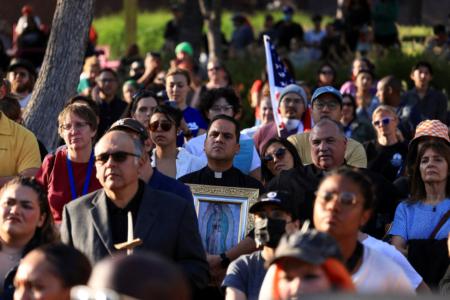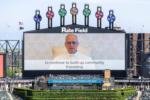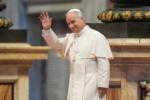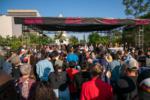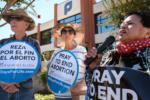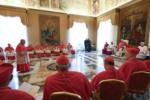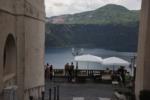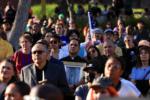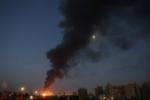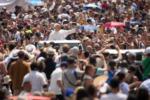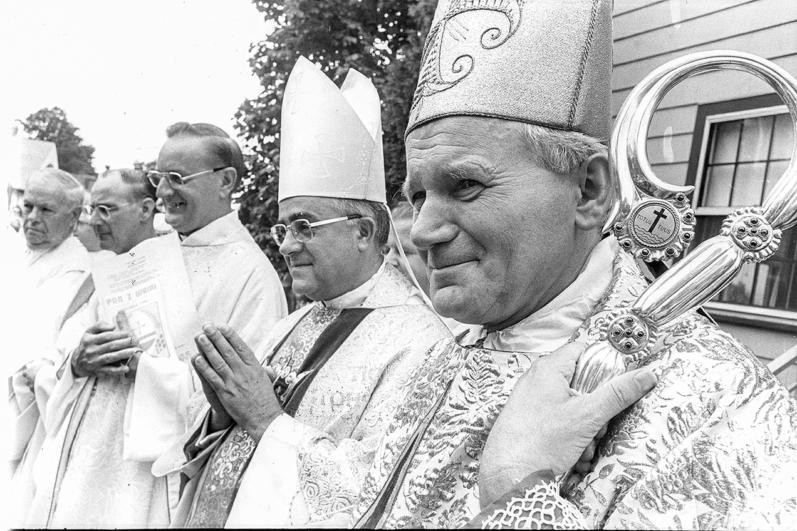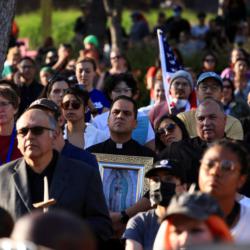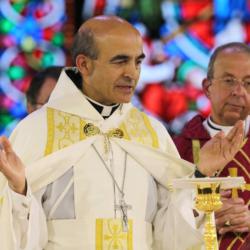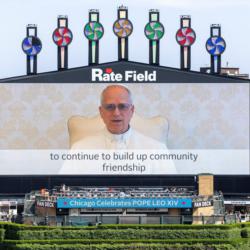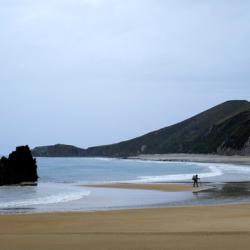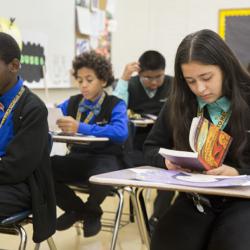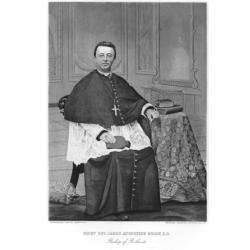Cardinal Medeiros and the year of two conclaves
In the history of the Archdiocese of Boston, only one cardinal archbishop has voted in more than one papal conclave: Cardinal Humberto S. Medeiros, a cardinal elector at the conclaves of August and October 1978 -- the year of two conclaves.
Following the death of Pope Paul VI on Aug. 6, 1978, the College of Cardinals convened in Rome to elect his successor. This was the first conclave since the Second Vatican Council, which had reshaped Catholic liturgy, inter-faith relations, and instituted a new "spirit" of engagement with the challenges of modern life by the time of its completion in 1965. It was also Cardinal Medeiros's first conclave, having been created a cardinal in 1973, a few years after his installation as Archbishop of Boston.
Cardinal Medeiros, who is remembered as a quiet and somewhat reserved leader, found himself thrust into the media spotlight, as all cardinals are around the time of a conclave. "I'm praying for a man after the heart of Christ," Medeiros told The Boston Globe, "He must be a man filled with faith and love to lead us in the Lord Jesus Christ -- whatever else he needs, the Lord will provide." This statement was carefully neutral and in keeping with the cardinal's often uttered refrain "whatever God wants." In other moments, the cardinal was more candid, admitting that his preference was for "one just like" Pope Paul VI. Continuity, then, was the order of the day for Cardinal Medeiros as he walked through the doors of the Sistine Chapel on that extraordinarily hot August day.
On the second day of the conclave of August 1978, Cardinal Albino Luciani, Patriarch of Venice, was elected. He became the first pope to select a double name, "John Paul," honoring his two immediate predecessors, Pope John XXIII and Pope Paul VI, and the first to specify the postnominal, "I," or "the first." The choice of a name signaled continuity, and Cardinal Medeiros was pleased with the selection. His handwritten pastoral letter to the people of the archdiocese, written on Aug. 28, two days after the election, is effusive -- even more so than the edited version published on Sept. 1. "We do stand in wonder before this marvel of God's infinite goodness and love, as we stood in joyful wonder Saturday before John Paul I."
Sadly, Pope John Paul I died of a heart attack on Sept. 28, 1978 -- just 33 days into his papacy. "Yet one month," Cardinal Medeiros said in a homily following the sudden death, "was enough for him to have conquered hearts -- and, for us, it was a month to love him intensely. It is not length which characterizes a life in a pontificate, but rather the spirit that fills it."
The second conclave of 1978 opened on Oct. 14 and, again, Cardinal Medeiros travelled to Rome. "Do you ever really pray too much about a decision such as this?" Cardinal Medeiros asked The Boston Globe in a pre-conclave interview. "I will look for what the Lord looked for in Peter, profound faith and profound love for him," he said, noting that he was open to electing a non-Italian Cardinal, something that hadn't been done since the 16th century. His brother cardinals shared his openness, reportedly finding the strongest Italian candidates too divisive during the conclave. On Oct. 16, the conclave elected Polish Cardinal Karol Wojtyla, who took the name Pope John Paul II.
Cardinal Medeiros had a personal relationship with Pope John Paul II, whom he had both hosted in Boston and visited in Poland in the past. "We in Boston have a special reason to rejoice in the election of Pope John Paul II. As Cardinal Karol Wojtyla, he visited us in July and August, 1976, lectured at Harvard University, and was the house guest of Msgr. Stanislaus T. Sypek in Hyde Park," the cardinal wrote in a statement, "I had the privilege of concelebrating Mass with him ... He was our honored guest for dinner at the Cardinal's Residence on two occasions during his visit." In 1975, Cardinal Medeiros had stayed with Cardinal Wojtyla during an archdiocesan pilgrimage to Krakow. Cardinal Medeiros's predecessor, Cardinal Richard J. Cushing, had hosted Cardinal Wojtyla in an earlier visit to Boston, in 1969.
Given his personal familiarity with Pope John Paul II, Cardinal Medeiros's initial pastoral letter about the new pontiff is much more detailed than the one he wrote about Pope John I. The latter he'd written about in general terms -- his holy demeanor, his "serene smile," the inspirational quality of his initial sermons and speeches. Of Pope John Paul II he could say, with first-hand knowledge, "Pope John Paul II is close to the people, to the poor from whom he comes ... His deep spirituality, nourished in the gospels and the masters of the spiritual life...will inspire the whole Church to greater efforts of spiritual renewal."
Cardinal Medeiros's prediction came true, and Catholics around the world did come to be inspired by the deep spirituality of Pope John Paul II, who became the third-longest serving pope in church history on his death in 2005 and was canonized a saint in 2014. But his historic pontificate was only made possible by the circumstances of his election: the year of two conclaves.
VIOLET HURST IS AN ARCHIVIST FOR THE ARCHDIOCESE OF BOSTON.
- Violet Hurst is an archivist for the Archdiocese of Boston.
